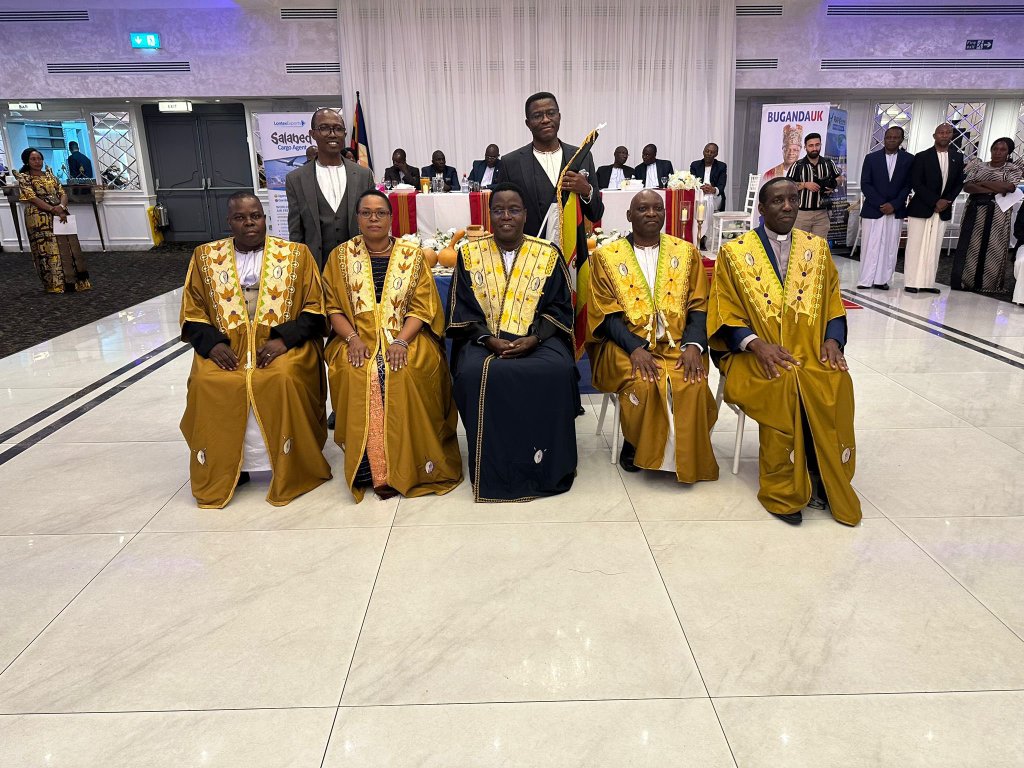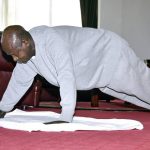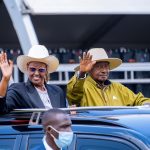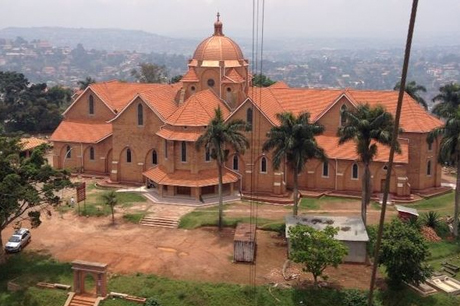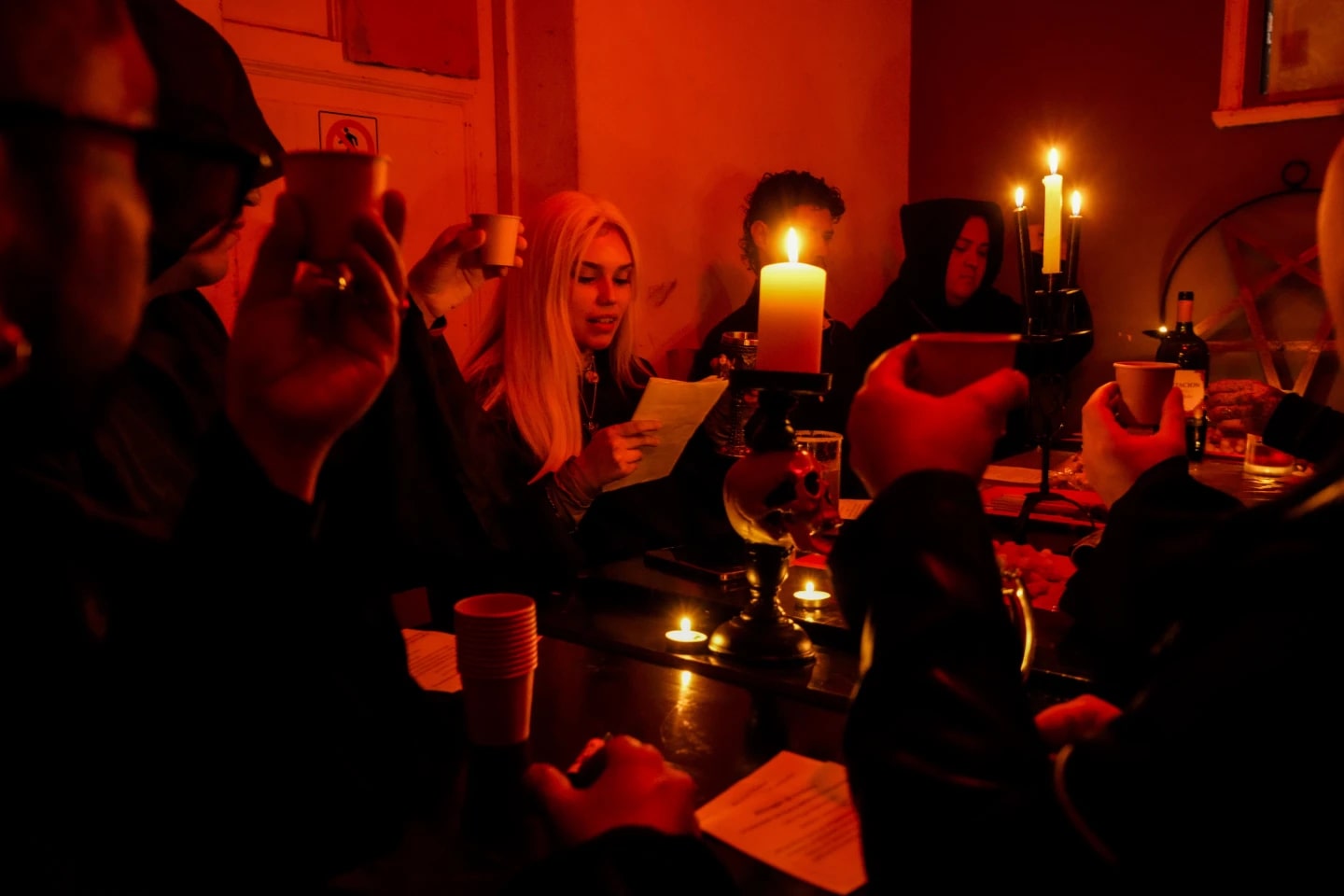(London, UK) – When Baganda gather, you can bet it is going to be a serious affair. And when it happens in London—home to fish and chips, Queen’s tea, and Ugandans in oversized winter coats—you know something big is brewing. The first ever Buganda Bumu European Convention took place over the weekend, and Katikkiro Charles Peter Mayiga made a rousing call to the Baganda diaspora. His message was “Get serious and start building wealth like the Indians in the diaspora. And throw in some Jewish teamwork while you are at it.”
The three day event kicked off on Friday and wrapped up on September 15, and like a well organized Ugandan kwanjula, it brought out the best in tradition, speeches, and because there is always some drama, a protest just outside the conference hall. But we will get to that in a bit.
Borrowing a Leaf from the Indians (and Maybe the Jews Too)
The Katikkiro did not mince his words as he stressed the need for unity among Baganda abroad. He called on them to emulate the Indian diaspora, a community known for pooling resources to grow their wealth like a perfectly fertilized sugarcane plantation. He claimed when you see a group of Indian businesspeople working together, it is like watching a well oiled machine, where every part knows its role.
“If Indians can do it, why can’t Baganda?” Mayiga asked. “Look at the Jews. Fewer in number, yet their wealth and power speak for themselves.” The Premier was reminding the Baganda diaspora that their clan meetings and weddings are NOT the only things they should be getting together for. There are bigger fish to fry, like collective wealth and development for Buganda.
Protesting While the Party is On
As usual there is no gathering without a bit of drama. Just as the Katikkiro was delivering his sermon on unity and development, a group of rather disgruntled Baganda stood outside, waving placards that suggested they were not entirely on board with his leadership. Their demands were simple. They wanted Kabaka Ronald Muwenda Mutebi II to sack Mayiga. A bold request, considering they were only a few meters away from the man himself.
But Mayiga, ever the politician, did not take the bait. Instead of addressing the protestors directly, he kept his focus on the task at hand: preaching the gospel of hard work, group effort, and taking on challenges as opportunities. It either a masterclass in leadership, or perhaps just a clever avoidance of a potentially awkward confrontation. After all, in Uganda, when elders are talking, you do not interrupt, not even with a protest.
Back to Business
The central theme of the convention was simple: unity is strength. Mayiga called on the Baganda to rally together to address issues like poverty, health, politics, and service delivery, much like how a team of boda boda riders weave through Kampala’s chaotic traffic—fast, effective, and without breaking a sweat. “We need collective effort,” he stressed, “if we are going to push Buganda forward.”
It was not just about pooling resources. The Katikkiro also had a stern warning about the misuse of technology. Yes, your smartphones and Facebook pages are good for sharing photos from that Kwanjula, but according to Mayiga, they should also be used for wealth creation and keeping the Buganda culture alive. “Let us not get carried away,” he said. “After all, development does not happen on WhatsApp.”
Retired Supreme Court Judge Esther Kisakye Kitimbo Nakangu, another key figure at the convention, had some tough words for the crowd too. She urged the Baganda to embrace transparency and integrity, values that she claimed she proudly carried throughout her 60 years of life, 20 of which were spent on the bench, untainted by corruption (or so she said). For her, speaking the truth was more important than impressing anyone, a philosophy she seemed to have carried with her even in retirement.
Judge Kisakye did not shy away from addressing the cultural threats facing Buganda either. She spoke of land grabbing, a problem that is as common in Uganda as the sight of Matooke at any lunch ceremony in Buganda. “Our culture is under threat,” she warned, pointing to the destruction of graveyards belonging to Baganda clans, particularly the Mpologoma clan in Wakiso District. It was a grim reminder that, while development is important, it should not come at the expense of tradition.
Preserving Buganda Culture in the Digital Age
Social media has given many Ugandans a voice, but it is also a double-edged sword. The Kingdom’s representative in Manchester, Rev. Enock Mayanja Kiyaga, warned about the impact of sensational journalism on the diaspora. He cited the infamous 2020 incident when Kabaka Mutebi was declared dead on social media, only for him to reappear in Kenya a few days later, very much alive. “We need to be careful about the news we consume,” Kiyaga cautioned, comparing sensational journalism to ekyooto ky’omuliro—a wild fire that burns everything in its path before the truth has a chance to catch up.
Kiyaga urged Baganda in the diaspora to critically evaluate the news they consume, reminding them that not everything on social media is gospel truth. Much like how you don’t believe every rumor you hear at a village meeting, you should not take every tweet as fact.
The convention drew participants from Scandinavia, England, and Northern Ireland. One message stood out: Baganda need to take charge of their future, both culturally and politically. Justice Kisakye called for open dialogue ahead of Uganda’s 2026 general elections, urging the Kingdom to take a clear stance. After all, when Baganda unite, they are as formidable as an army of ants working together to carry a loaf of bread across the road.
Buganda Kingdom’s Local Government Minister, Joseph Kawuki, stressed the importance of responsible citizenship and truth telling in preserving Buganda’s values. “We need concerted efforts, active participation, and strategic planning,” he said, sounding much like a football coach giving his team a pep talk before a crucial match.
| Key Themes Discussed | Solutions Proposed | Challenges Highlighted |
|---|---|---|
| Unity and Collective Effort | Pooling resources, working in groupings | Disunity within the Baganda diaspora |
| Cultural Preservation | Use of social media for positive cultural impact | Loss of land and graveyards |
| Integrity and Transparency | Open dialogue, honesty in leadership | Sensational journalism affecting perceptions |
| Development | Strategic planning for wealth creation | Economic challenges faced by diaspora |
The diaspora Baganda have a lot of work to do if they want to emulate the success of other communities. Whether they are ready to take on the challenge, however, remains to be seen. But if they follow Mayiga’s advice, maybe they will one day build the Buganda of their dreams, one WhatsApp group at a time.

